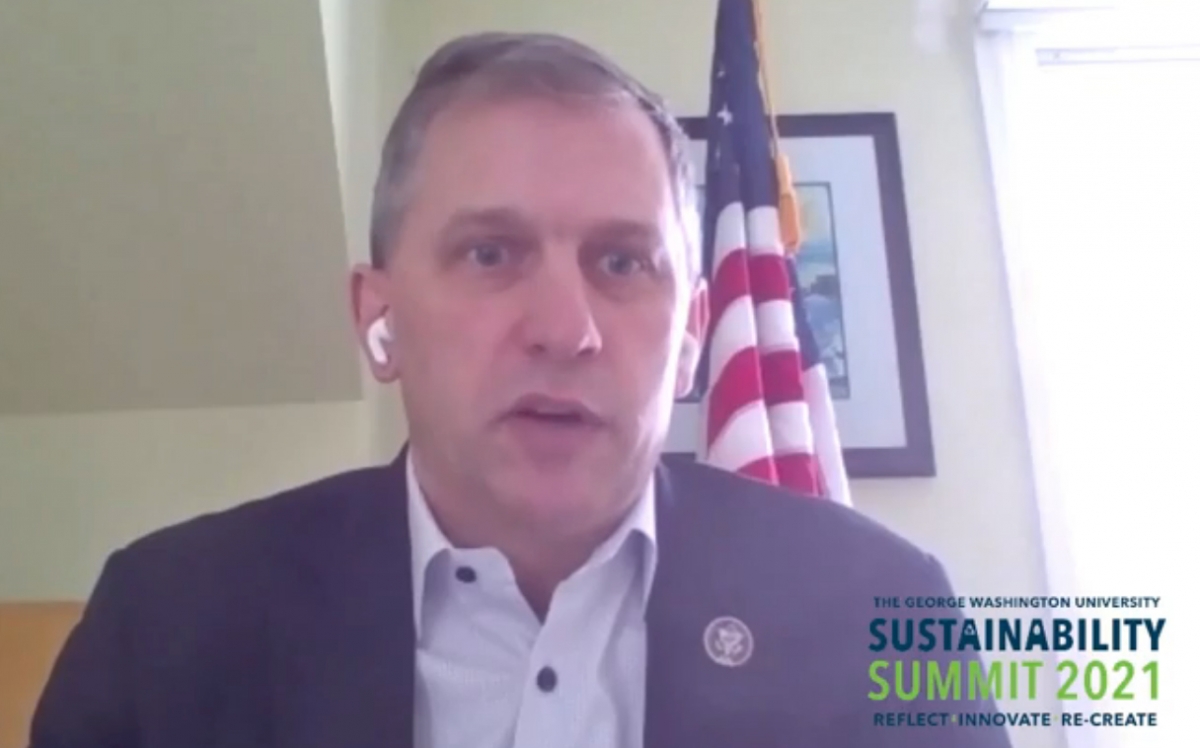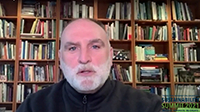On February 11, 2021, Sustainable GW hosted a virtual Sustainability Summit on the theme – Reflect, Innovate, Recreate. The day-long event that featured leaders from academia, industry, and government tackling the topics of climate resilience, social justice, environmental equity, historical GHG emissions, and energy innovation with an eye toward the next century.
Featured speakers included renowned chef, humanitarian and activist José Andrés and national climate strategist and advisor Tamara Toles O'Laughlin. Chef Jose Andres stressed that empathetic gestures are more important now than ever and could include anything from helping older neighbors with groceries to donating your time or money to a local food bank.
Sustainable GW held the virtual summit to celebrate the sustainability accomplishments GW has made while also looking at the challenges that lie ahead and what the university community can do to contribute through technological and policy solutions.
During the summit, GW President Thomas LeBlanc reaffirmed the University’s commitment to sustainability by announcing a plan to phase out single-use plastics, beginning immediately.
The Sustainability Summit brought together key thought leaders to discuss environmental justice in the realm of community resiliency amid climate change, carbon neutrality and legacy emissions, and renewable, clean energy as a critical component to recovering from some of the damage that a reliance on fossil fuels has done to our planet. Energetic discussions exploring solutions to those key issues characterized the various panels and interviews that were conducted during the event.
One panel consisted of GW deans from the Columbian College of Arts and Sciences, School of Engineering and Applied Science, GW Law School and the Milken Institute School of Public Health. The Deans discussed ways that academics working in their respective areas of expertise can make an impact on key sustainability issues. Through that discussion, the Deans agreed that the academic community can and should be doing more on sustainability issues, from research to empowering future leaders, and that GW has been at the forefront of this by incorporating sustainability in its mission.
GW Provost M. Brian Blake opened the discussion by emphasizing that sustainability and climate change are interdisciplinary issues that require “cross-functional collaboration” to develop viable solutions. In the face of rising global temperatures, communities around the world face changes in weather, infrastructure, health, and ecosystems. Research shows that connections within communities can support resilience in light of these changes and that local and federal governments, as well as corporations and anchor institutions like universities have a significant role to play.
 |
| Representative Casten speaks at the Summit |
Frank Sesno, Director of Strategic Initiatives for the School of Media and Public Affairs, interviewed U.S. Representative Sean Casten (D-Ill.) during the summit about progress that can be made on sustainability issues under President Joe Biden’s administration. After dealing with COVID-19 stimulus legislation, Mr. Casten said, there is hope that Congress will be able to tackle infrastructure issues, such as modernizing the electric grid and becoming a leading purchaser of clean energy. However, he said that there is a difficult road ahead when it comes to unpacking complex issues that tie climate.


